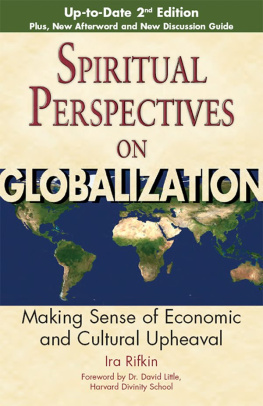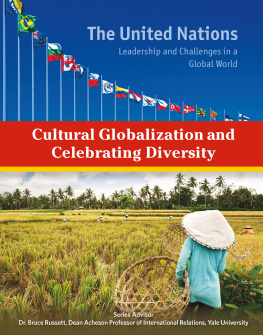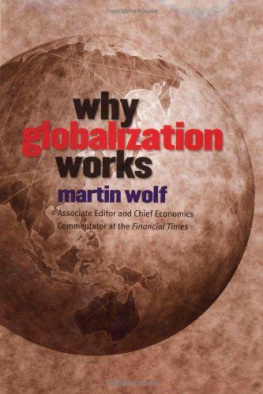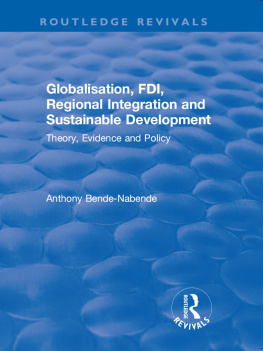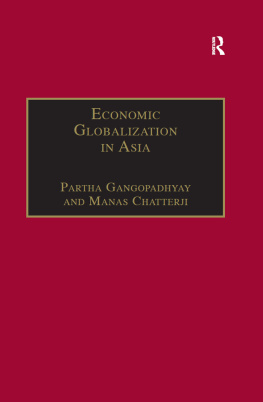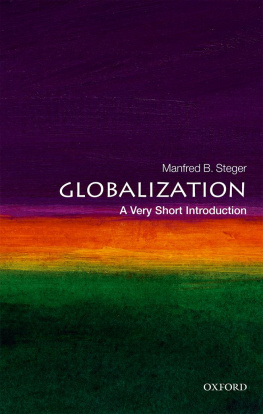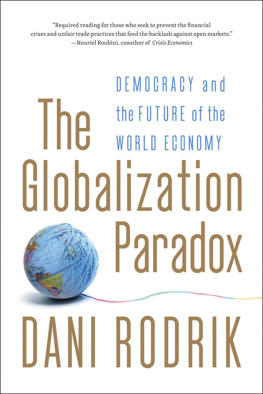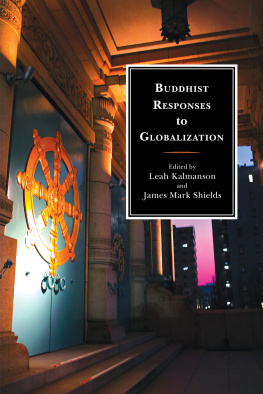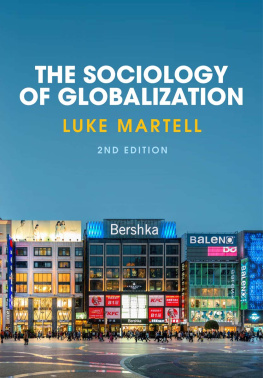SPIRITUAL
PERSPECTIVES ON
GLOBALIZATION
Making Sense of Economic
and Cultural Upheaval
2nd Edition
Ira Rifkin
Foreword by Dr. David Little,
Harvard Divinity School

Thank you for purchasing this SkyLight Paths e-book!
Sign up for our e-newsletter to receive special offers and information on the latest new books and other great e-books from SkyLight Paths.
Sign Up Here
or visit us online to sign up at
www.skylightpaths.com.
Looking for an inspirational speaker for an upcoming event, conference or retreat?
SkyLight Paths authors are available to speak and teach on a variety of topics that educate and inspire. For more information about our authors who are available to speak to your group, visit or call us at (802) 457-4000.
Spiritual Perspectives on Globalization, 2nd Edition:
Making Sense of Economic and Cultural Upheaval
2013 First Digital Edition
All rights reserved. No part of this book may be reproduced or transmitted in any form or by any means, electronic or mechanical, including photocopying, recording, or by any information storage and retrieval system, without permission in writing from the publisher.
For information regarding permission to reprint material from this book, please mail or fax your request in writing to SkyLight Paths Publishing, Permissions Department, at the address / fax number listed below, or e-mail your request to permissions@skylightpaths.com.
Text 2004 and 2003 by Ira Rifkin
Foreword 2003 by David Little
Library of Congress Cataloging-in-Publication Data
Rifkin, Ira.
Spiritual perspectives on globalization : making sense of economic and cultural upheaval / Ira Rifkin ; foreword by David Little.2nd ed.
p. cm.
Includes bibliographical references and index.
ISBN 1-59473-045-8 (pbk.)
1. GlobalizationReligious aspects. I. Title.
BL65.G55R54 2004
201'.7dc22 2004006976
10 9 8 7 6 5 4 3 2 1
Manufactured in the United States of America
Cover Design: Tim Holtz
Cover Photo: NASA/Goddard Space Flight Center
SkyLight Paths Publishing is creating a place where people of different spiritual traditions come together for challenge and inspiration, a place where we can help each other understand the mystery that lies at the heart of our existence.
SkyLight Paths sees both believers and seekers as a community that increasingly transcends traditional boundaries of religion and denominationpeople wanting to learn from each other, walking together, finding the way.
SkyLight Paths, Walking Together, Finding the Way, and colophon are trademarks of LongHill Partners, Inc., registered in the U.S. Patent and Trademark Office.
Walking Together, Finding the Way
Published by SkyLight Paths Publishing
A Division of LongHill Partners, Inc.
Sunset Farm Offices, Route 4, P.O. Box 237
Woodstock, VT 05091
Tel: (802) 457-4000 Fax: (802) 457-4004
www.skylightpaths.com
To Jesse, Brady, Jody, Chelsea, and especially Ruth, my wife and rock.
THERE IS A WIDESPREAD BELIEF that the negative effects of globalization, particularly on economic and financial life around the world, are as severe as they are because of the absence of an effective counterweight. At one time, the labor movement was a barrier against many of the crueler aspects of corporate capitalism, as were the various versions of socialism that once existed. But those movements had their own problems, and in all the industrial democracies today, the labor movement is a pale shade of its former self, while socialism (along with communism) is taken to be mostly discredited.
With the resurgence of religion, some people suggest that the worlds faiths are a promising substitute. This is a proposition that needs to be tested, and one of the great virtues of Spiritual Perspectives on Globalization is that the book effectively initiates that process of testing. In the pages that follow, Ira Rifkin provides, in an accessible and appealing form, some of the raw material by which to begin to determine how potent, how effective a counterweight to globalization the worlds religions (or at least eight of them: Catholic and Protestant Christianity, Islam, Hinduism, Judaism, Buddhism, Bah, and Tribal and Earth-Based Religions) might be.
In a way, Spiritual Perspectives on Globalization represents a two-fold challenge. It pulls together a recurring set of criticisms and objections to the inequities and injustices in wealth, working conditions, and quality of life, as well as to environmental degradation and the exercise of unaccountable power (in the elegant phrase of one of Rifkins interviewees) that are, as Rifkin makes clear, associated with globalization in the minds of many religious believers across the world. The book forcefully conveys the impression that there is widespread and intense concern in all of the religions represented about the ill effects of globalization, and about the need to counteract those ill effects in various ways. These shared themes might well become a platform for effective common action, though, as the material in the book also makes clear, things are only at a very preliminary stage.
On the other hand, the information conveyed in Spiritual Perspectives on Globalization presents a challenge to the religions examined, as well. While there is evidence of broad inter-religious consensus on the objections to globalization, at least among some members of each tradition, there is also evidence of significant division within the traditions, especially the Roman Catholics, the Protestants, and the Jews, as to how negative the impact of globalization actually is, and whether it might not have considerable benefits as well. If there is to be a united frontrequisite, one would think, for providing an effective counterweight to globalizationthese differences and divergences will need to be confronted and to some degree harmonized within as well as among the worlds faiths.
Moreover, if religious responses to globalization are to make a difference, cooperation of a practical, organizational sort will need to be expanded along with more theoretical interaction. The labor and socialist causes were, above all, organized political and social movements. Religious people will have to begin to reflect on and learn from the efforts of movements like those to curtail the excesses of capitalism (both the successes and failures), if they are to come to play the kind of influential role many adherents described in this book desire. An important start toward that end is valuably reported in Ira Rifkins engaging book.
Dr. David Little,
Professor of the Practice in Religion,
Ethnicity, and International Conflict;
Director of Initiatives in Religion and Public Life,
Harvard Divinity School
THIS BOOK IS NOT MEANT TO EXHAUST all that may be said about so multifaceted a subject as spiritual and religious perspectives on globalization. Instead, look upon this book as an introduction to how concerned, informed people in many of the worlds major spiritual traditions address the complexities that surround the issue that may be said to define the age in which we live. No attempt has been made to include every perspective within each of the eight traditions profiled.
At the back of this book is a list for further reading on the subject from a wide variety of viewpoints. Dip into it, learn more about globalization, and seek out opinions Ive not included. Education is paramount for informed judgment, and how we react to the sweeping changes that are altering our world irrevocably will determine our, and our childrens, futures.
Next page
